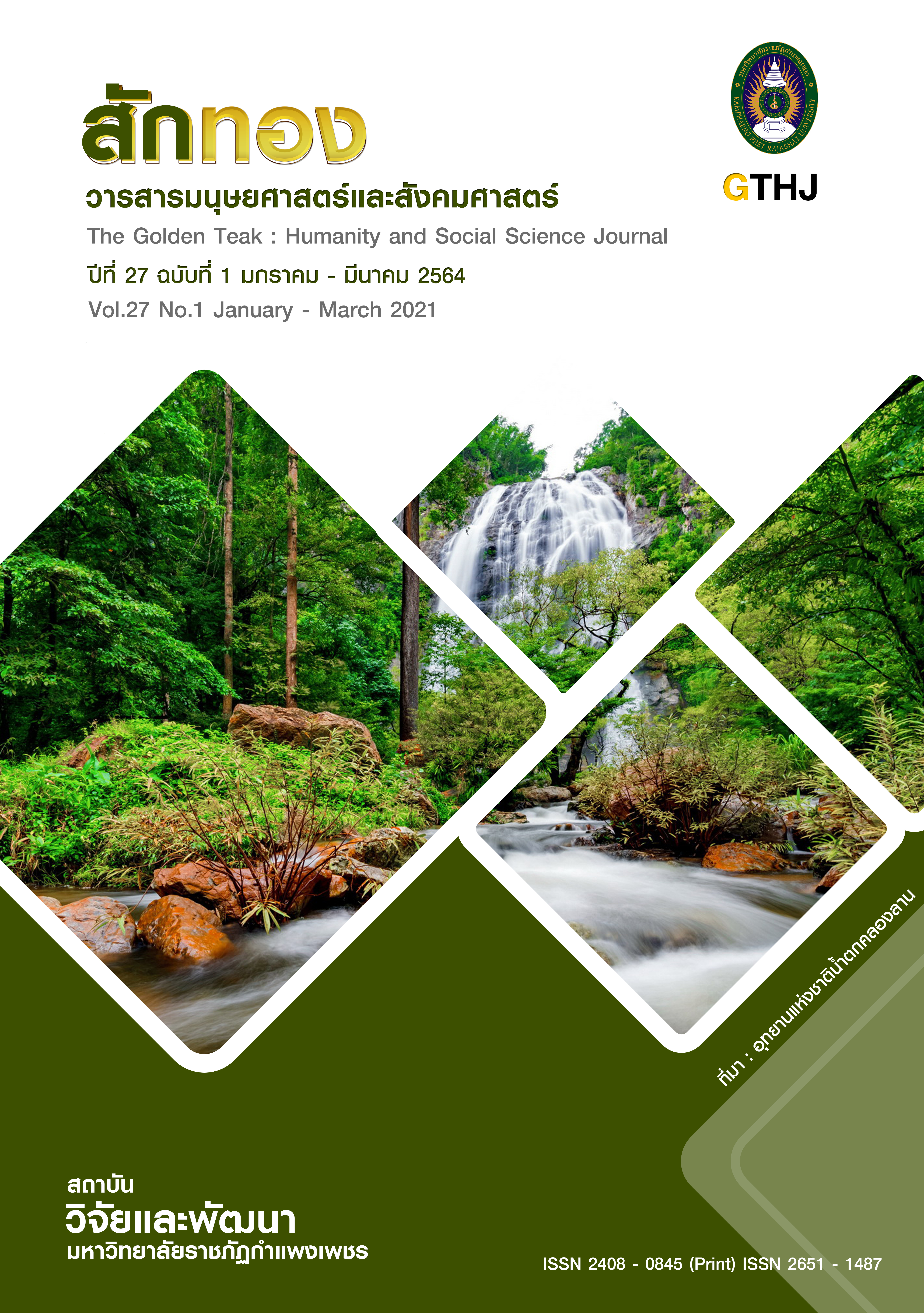ลักษณะจิตสำนึกสาธารณะของนิสิตจากรูปแบบการเรียนการสอนที่ใช้การวิจัยเป็นฐาน
Main Article Content
Abstract
The objective of this research is to study the public consciousness characteristics of students from the teaching and learning styles that based on “Research Based Learning Approach” through the writing of the research proposal of students. A qualitative method is used. The participated observation form of the research proposal was research tool by content analysis. There were 35 key informants, students from the Department of Political Science, Faculty of Social Sciences Srinakharinwirot University. The research found that the research-based learning approach to teaching and learning can lead to greater public consciousness of student. As the research results show that public consciousness characteristics of students from the teaching and learning styles that based on Research Based Learning Approach through the writing of the research proposal, in three parts: “Statement of Problem and Significance of Research”, “Review of the Literature” and “Research methods”. In sum, it can lead students to have the actions that aim to benefit others to society in “committed social development”and followed by “social sacrifice” and “helping others” respectively.
Article Details
บทความที่ได้รับการตีพิมพ์เป็นลิขสิทธิ์ของวารสาร สักทอง : วารสารมนุษยศาสตร์และสังคมศาสตร์ สถาบันวิจัยและพัฒนา มหาวิทยาลับราชภัฏกำแพงเพชร
ข้อคิดเห็นใดๆ ที่ปรากฎในวารสารเป็นวรรณกรรมของผู้เขียนโดยเฉพาะ ซึ่งมหาวิทยาลัยราชภัฏกำแพงเพชรและบรรณาธิการไม่จำเป็นต้องเห็นด้วย
References
learning ability, and public consciousness of nursing students, Bangkok Metropolis. Thesis. Master of Nursing, Faculty of Nursing, Chulalongkorn University.
Bloom, B.S., Thomas J. & Madaus G.F. (1971). Handbook on Formative and Summative
Evaluation of Student Learning. New York : McGraw-Hill Book Company.
Khadtan, W. (2014). Public mind of public health in Bangkokthonburi University. Thesis.
Master of Science, Department of Family Health, Faculty of Public Health, Mahidol
University.
Khaensa, S. (2008). Public awareness development for secondary school students: a case
study of Khon Sawan School. Dissertation. Educational Administration and Development, Educational Research and Evaluation, Faculty of Humanities and Social Sciences, Mahasarakham University.
Maaun, R. (2016).Effective teaching and learning in higher education. Southern Technology
Journal, 9(2), 169-176.
Ministry of Education. (2011). Basic statistical data on overall education of each academic
year. [Online]. Available : http://www.moe.go.th/datastat/ [2018, August 8].
Namarak, L. (2009). Analysis of public mental elements of students in student
organizations Ramkhamhaeng University. Thesis. Master of Education, Industrial and Organizational Psychology, Graduate School, Ramkhamhaeng University.
Nutnichakorn, S. (2007). Development of a causal model of students' volunteer mind in
the upper secondary schools under the Office of the Basic Education Commission. Thesis. M.Ed. (Educational Research), Graduate School, Chulalongkorn University.
Pornchokchai, S. (2010). CSR (Corporate Social Responsibility. Bangkok : S. Wirat Printing.
Sinlarat, P. (2002). the need for aggressive education in Asia. In The reform of education,
page 60-68. Bangkok : Management Department, Faculty of Education, Chulalongkorn
University.
Thongorn, S. (2007). A comparative study of public consciousness in resource
conservation of Mathayom Suksa 3 and 6 students in Prachinburi Province with
different levels of ethical reasoning. Thesis. Master of Education, Research and
Educational Statistics, Graduate School, Srinakharinwirot University.
Thammachat, J. (2009). A research and development of research-Based learning
management model in the educational research course. Research. Faculty of
Education, Prince of Songkla University Pattani Campus.
Wajee, J. (2016). The Factors on Public Mind Behavior of the Secondary School Students
in Bangkok. Thesis M.A. (Social Sciences for Development). Chanthaburi : Rambhai
Barni Rajabhat University.


